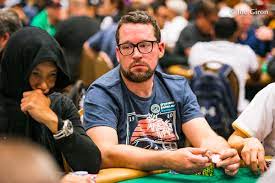The most miss understandable adage in Dewacasino is “don’t summarize.” Unfortunately it’s so true… so much so that most beginners really believe it, and end up summarizing everything.
Well, I sort of agree with this. summarizing is cool at times and very useful, but when you’re playing an extremely competitive game that’s anything but a simple task, using such a strategy is actively harmful.
Not only that, but you might seriously slow down your learning curve significantly. Sure, you can gain vast new knowledge about poker from great books, or watching other players in tournament, but you can also slow down the natural learning process so much that you’re passing up opportunities to improve your game.
Here’s the thing: you can’t do both. You can watch a tournament on TV and know the overview of a hand when you’re watching a hand, but you can’t slow down and complain about your bad luck. freeze the frame, assess the situation, and then ask yourself why you did so and how you can improve next time.
Here’s another stark difference between analyzing a hand and a decision: you can’t train in the decision, and then when you are ready you can act on that learned decision. You can’t review what you have so that you can act on what you have read. You can’t let the remains of a hand obscure the fact that you didn’t make the best play.
When you review, you are advancing the collective knowledge of the collective poker population you are a part of – players, Sit N Go players, poker pros, and the rest of the players who love poker. Reviewing brings you into immediate contact with the issues so you can ask bigger questions about the game. You can expand on your authored material, and improve on your analytical abilities.
However, the perfect is not the only way to improve. You can always step back and ask bigger questions. You can broaden your horizons, and challenge yourself to find ways to improve the game of poker for both beginners and more advanced players.
As Milt Bodin said, “To a mind that is tired, all imagination is meaningless.” We are all mental. We come to the site of the possible by exhausting every possibility in front of our minds. Some people click their heads and hope, or rather, they use their hands to scratch the possibility. But without taking the time to change your mental habit, you will always rely on luck, or what little you have to work with, to get you through.
So, what does it take to be a professional poker player?
It takes discipline.
The first advice is, you have to be disciplined to adhere to a certain style of play. That means, you have to have aAnytime policy. You have to make certain you will play certain hands, particularly in position. You have to be disciplined to take your winnings early to minimize your losses. You have to be disciplined to fold if you have a losing hand when you are in position. You have to be disciplined to be patient and wait for the right cards, especially in full ring games. And, you have to be disciplined enough to learn when to change gears and play aggressively when you are not in position.
All of the above are important, but perhaps the most important of all. You have to be disciplined enough to stick with the one at a time. If you are not disciplined, you will not be successful.
This is the main theme running through a lot of what I am about to say. You have to be disciplined enough to execute a style of play that is
One of the things I believe this article has done for me is remind people of the importance of bankroll management. I used to be very bad at playing poker and would lose a lot of money. But then I started reading this article and now I must say that bankroll management has really improved. I used to play in games that I shouldn’t have. Now, I play in a slightly better game and I am more disciplined about the way I play.
Now, I will win one of two games. It doesn’t really happen, but it could, because I have learned to be disciplined and wait for the right hands. If the value of this discipline outweighs one or two games, then I am okay with it. But, if I lose a third, I begin to panic and miss some very good opportunities to win some money. That’s when I really have defects in my game. I’ve become what many would call tight. I only really play when I have a very good hand.
This is okay, as long as you don’t play too tight. This one of the mistakes that cost me lots of money. It’s also one of the easiest fixes to make. But, when you play too tight you are asking for trouble.
